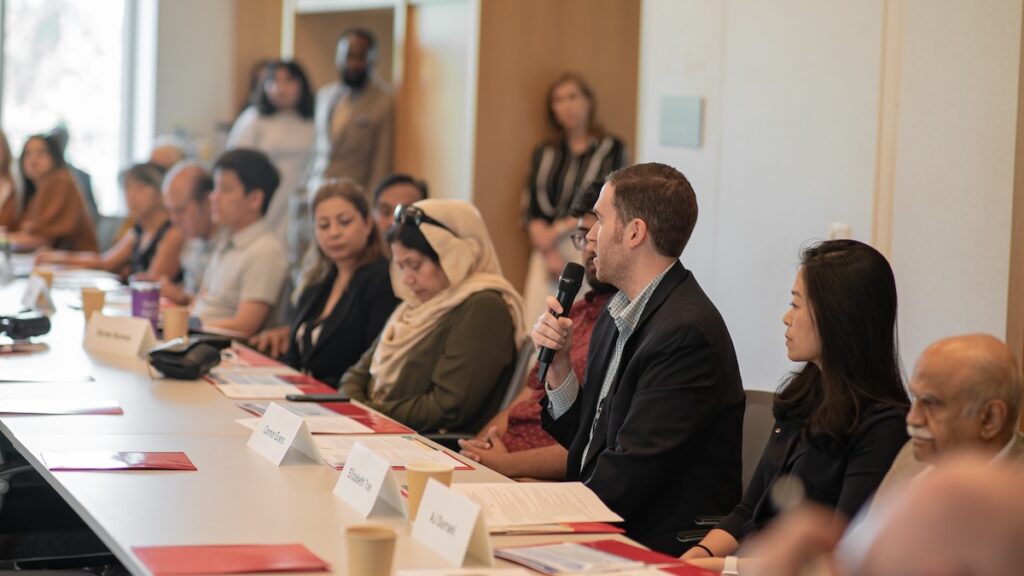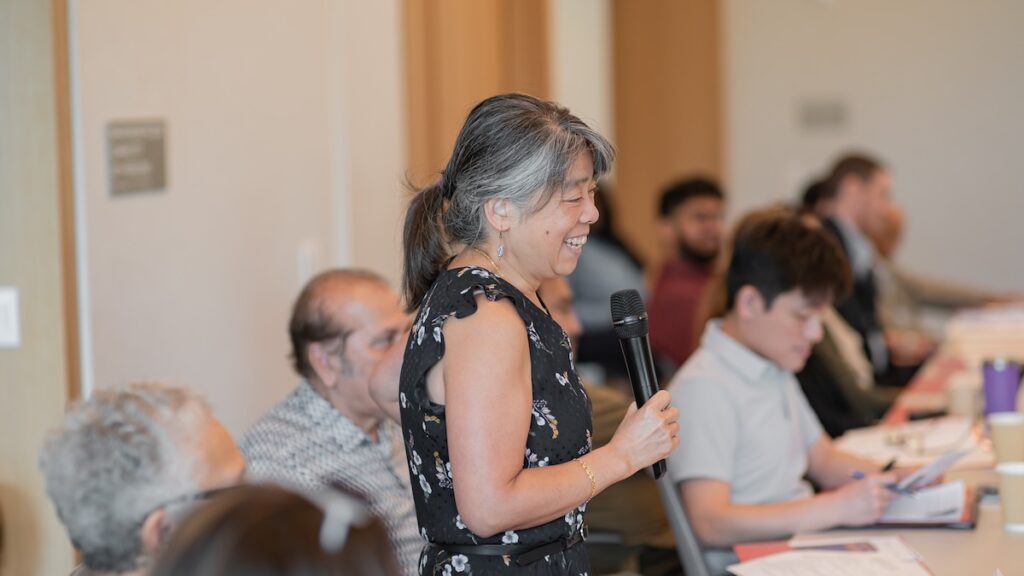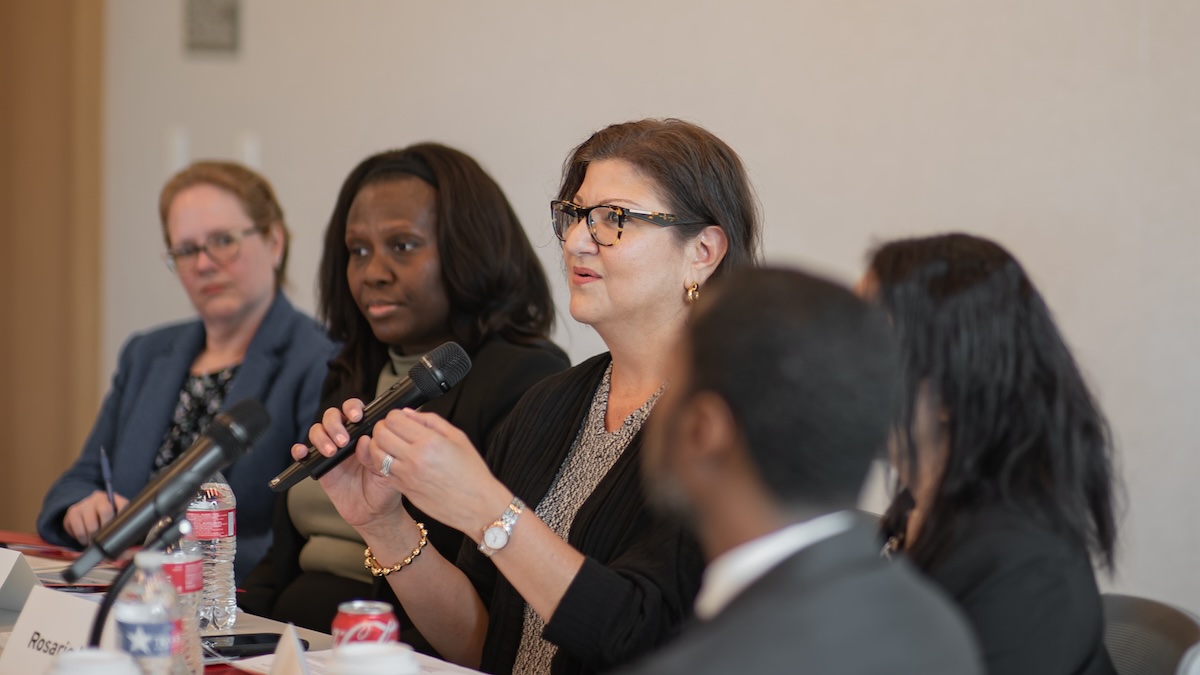HOUSTON – In an era where convenience and technology have become integral to our daily lives, the shadow of fraud looms ever larger. From romance scams to identity theft, no one is immune.
At a June 27 Houston Ethnic Media briefing, experts from the Federal Trade Commission joined law enforcement officials, consumer protection advocates and community leaders for a roundtable discussion on how to recognize and protect oneself from would-be swindlers.
According to the FTC, consumers reported losing nearly $8.8 billion to fraud in 2022, an increase of more than 30% over the previous year, underscoring the growing sophistication and prevalence of scams affecting diverse communities.
“Don’t be afraid to talk about scams. Stop, think fraud!” warned Assistant Director Rosario Mendez with the FTC’s Division of Consumer & Business Education.
According to Mendez, in 2023, the FTC received 2.6 million reports related to fraud, with people reporting losses of $10 billion, a substantial increase from the previous year. One out of four people who reported fraud to the FTC also reported losing money.
Impersonator scams were the most-reported, with higher losses to business imposters. Scams starting on social media saw the highest overall losses, while phone scams had the highest per-person loss.
Younger adults (ages 20-29) reported losing money more often than older adults (ages 70+), but when older adults did lose money, they lost more than anyone else. Mendez emphasized, “These numbers are staggering. Fraud and scams affect all communities.”
Panelists highlighted a few of the top scams to be on the lookout for.
Romance scams take more from you than money
Looking for love in all the wrong places is not just a well-known country and western song, it’s a modern-day red flag warning when it comes to scammers lurking in social media DMs (direct messages).
Fraudsters create fake profiles on dating sites and social media to build relationships with unsuspecting victims. Once trust is established, they fabricate stories to solicit money. But it doesn’t stop there. Scammers often manipulate victims into unknowingly laundering money by instructing victims to deposit checks on their behalf for various reasons, then sending them the money.
“If it’s not your money don’t put it into your bank account because you’re probably trafficking,” warned John Brewer, chief of the Economic Crimes Division at the Fort Bend District Attorney’s Office.
Check and bank fraud

Historically, even high-profile figures like Oprah Winfrey spoke about personally signing every check to protect against fraud. However, according to experts at the FTC briefing, this method should probably be added to the “a thing of the past” category. They warn that checks are one of the easiest ways for bad actors to victimize good people.
Scammers these days are stealing checks from the mail, altering the details, and cashing them.
“We see and get a lot of cases on our check frauds and that’s both check forgeries, check counterfeiting, and then also identity theft to create bank accounts in victims’ names,” explained Connor Evans, detective in the Financial Crimes Unit of the Houston Police Department.
He elaborated that many of these fraudulent checks come from stolen mail, unfortunately sometimes at the hands of trusted US Postal workers. The scammers often erase either the payee or the amount, then use stolen identities to open bank accounts and deposit the altered checks. This is not limited to individuals; large corporations are also on the hit list.
“We’ve seen on the business side where suspects will pose as businesses, they will pose as the CFO of a company, they’ll pose as the accounting manager,” Evans noted.
It’s crucial to protect your mail and be vigilant about bank statements to catch fraudulent activity early.
Phishing Emails: Be cautious of what you click!
Scammers send fake emails appearing to be from legitimate companies to steal personal information. Be wary of unsolicited emails and verify their authenticity before clicking on any links.
“I was naive to think that nonprofits would be spared from scam and fraud because we do good work in the community. Of course, I was wrong with that because, if anything, we are seen as an easy target,” said Sheroo Mukhtiar, executive director with SERJobs & Financial Empowerment Center. “I will say that, with the pandemic, I think the scams have become even more sophisticated.”
Mukhtiar shared an incident where scammers were impersonating her to target employees. Thankfully, the ruse was caught in time and is now a part of the organization’s onboarding lessons.
Desperation makes vulnerable targets

Fraudsters often target vulnerable populations with limited language skills, making them more susceptible to scams. One particular community heavily targeted is immigrants fearful of their immigration status.
Executive Director of Houston Immigration Legal Services Collaborative Zenobia Lai highlighted how scammers exploit constantly changing immigration policies.
“You all hear from the news basically every week there’s a new immigration policy. Sometimes in the immigrant community, it is very difficult to really know what is going on,” she said.
Scammers take advantage of this confusion by offering false promises of help with immigration status.
“Scammers say, ‘Here, give me $10,000 and I’m going to apply for you.’ In the immigrant community, they often don’t know the difference in new programs, and they want to be able to apply so that they can protect themselves,” Lai noted.
Brewer provided a breakdown of how different racial and ethnic communities are targeted, noting that in the Latino community victims often obtain fraudulent documents like driver’s licenses or Social Security cards to secure employment or housing. “Simply having those documentations in their possession is a felony,” Brewer warned.
Money transfer schemes are within the African community, where criminals use bank accounts to move money, which constitutes money laundering, while scammers exploit trust in the Asian, South Asian, and Middle Eastern Communities where business transactions are often based on relationships and handshakes without formal contracts.
These situations are exacerbated by the lack of reliable information sources, making immigrants more vulnerable to fraudulent schemes. Connecting these communities with trustworthy resources and legal assistance is crucial in preventing them from falling victim to such scams.
Seek Help
“My main takeaway is verify, verify, verify! If you care about your money, verify that you&’re sending it to the right place and that you’re sending it to the right person. Don’t be afraid to ask,” said Krystal Walker, Executive Assistant US Attorney for the Southern District of Texas.
For those who do fall victim, it’s a tough road to navigate, but victims are not alone in their fight. The first step is to take action.
“When you realize that something has happened, please report it,” said Stephanie Bauman, Elder Justice Coordinator at the United States Attorney’s Office.
Bauman and others in the legal field are proactive in trying to help victims recover from losses.
“Scams can lead to financial ruin and loss of homes and if you think about the wealth gap and more people falling into poverty, it is something that society as a whole should be concerned about,” said Managing Attorney Tariq Gladney with Lone Star Legal Aid (Fort Bend).
Legal Services Director Elizabeth Tran of Houston Volunteer Lawyers wants the community to know there is free help available.
“A lot of people in our community are afraid to talk and they don’t want to tell other people about their woes,” Tran said. “They’re scared, they don’t want to be embarrassed, but a lot of times, too, is that they just don’t know if whether or not they have a legal issue. They know that they’ve been wronged, and they need some help.”
Nakia Cooper directs communications for Houston Ethnic Media, a network of community and ethnic media outlets in the greater Houston area.
Photos courtesy of Latin Touch Media.




